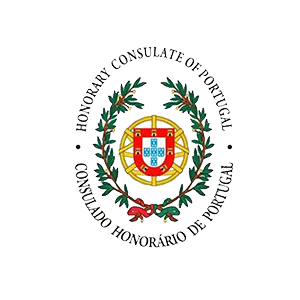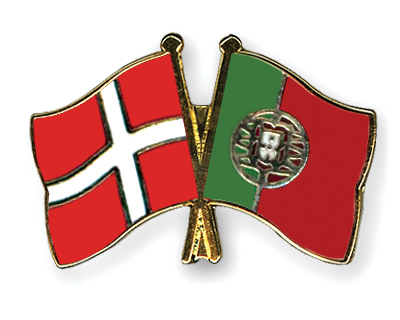Important note
The information presented below does not have binding nature, it works only as information and advice and is likely to change at any time. Neither the Portuguese Government nor the diplomatic and consular representations shall be liable for damages to persons and / or property.
Main information
Denmark (official name – the Kingdom of Denmark) is a constitutional monarchy, with King Frederik X as the current Sovereign.
Denmark consists of the peninsula of Jutland and about 406 islands, of which only 78 are inhabited. Of these, the largest and the most densely populated is the island of Zealand, where the capital city, Copenhagen, is located.
Denmark has a 7314 km-long coastline. The highest point of the country is located just 170,68m above the sea level. No inhabitant of Denmark lives more than 50km away from the sea.
Denmark has close to 6 million inhabitants. Apart from the Danish territory, the Kingdom of Denmark includes the Faeroe Islands and Greenland.
Time difference to Lisbon: + 1 hour.
Weather
Denmark is geographically located in northern Europe – between 54 and 58 north latitude and between 8 and 15 from east longitude – being hit by freezing temperatures especially in the months of December, January and February. Average temperatures are 16 degrees in the summer and one degree in the winter.
Language
The official language is Danish, but the majority of the population speaks English.
Local currency / bank system
The official currency is the Danish krone (DKK). The banking system works well, with no problems in moving internationally accepted credit cards. Banks are open from Monday to Friday, from 10.00 to 16.00 (on Thursdays they close at 18:00).
Entrace and permanency
Visas
The current system is the exemption of visas for Portuguese citizens. Foreigners with residence permit in Portugal also benefit from visa-free travel under the Schengen agreements. In both cases it is allowed to remain without a visa for a period of 3 months.
Safety conditions
Denmark is considered a safe country.
Copenhagen is referred to as one of the safest cities in the world with a low crime rate compared to other European capitals. However, every year, especially in the summer, the local police sends to the Embassy several stolen wallets, so visitors should not fail to take normal precautions and should not leave valuables in view inside buses or hotel rooms. In the event of theft, and in addition to immediate police involvement, the Consular Section at the Embassy of Portugal in Copenhagen should be informed.
Emergency
– The emergency number is 112, whether it be police, fire or medical assistance;
– Internet page of Danish police: http://www.politi.dk
Transportation
To plan your itinerary using public transport: www.rejseplanen.dk
Air transportation
There are daily international and domestic calls for large cities from Kastrup International Airport: www.cph.dk
Road transportation & security
Buses: www.movia.dk
The road network is of good quality, with free motorways. There are no risks to remark, both in terms of road traffic or regarding other means of travel within the country.
Speed limit
The legal speed limits are as follows, except in cases where the signal indicates smaller values:
– Motorways: 130 km/h
– Outside the towns: 80 km/h
– Within the towns: 50 km/h
Train transportation
The rail network is regular, of good quality and safe, with daily connections to all major cities.
– Railway services: www.dsb.dk
– Copenhagen Underground: www.m.dk
Sea transportation
– Ferry boats: www.dfdsseaways.dk
Accommodation
Health
The healthcare system works well and there is no special protection need on endemic diseases and others.
EU rules are applied, advising travelers to carry the E111 form or the European Health Insurance Card.
Main Hospitals and Clinics addresses
Copenhagen:
– Rigshospitalet – Blegdamsvej 9, 2100 Copenhagen, Tel +45 35 45 35 45
– Bispebjerg Hospital – Bispebjerg Bakke 23, 2400 Copenhagen NV, Tel +45 35 31 35 31
– Amagerhospital – Italiensvej 1, 2300 Copenhagen S, Tel +45 32 34 32 34
– Hvidovre Hospital: Kettegärd Alle 30, 2650 Hvidovre, Tel. +45 38 62 38 62
Odense:
– Odense Universitetshospital – Sdr. Boulebvard 29, 5000 Odense C, Tel. +45 66 11 33 33
Aarhus:
– Aarhus University Hospital: Palle Juul-Jensens Boulevard 99, 8200 Aarhus N, Tel. +45 78 45 00 00
Aalborg:
– Aalborg University Hospital: Hobrovej 18-22, 9100 Aalborg, Tel. +45 97 66 00 00
Pharmacies
Look for the sign in Danish “Apotek” (normal hours – 09:00 to 17:30).
There are two 24-hour service pharmacies in Copenhagen:
– Sondebroapotek: Amagerbrogade 158, 2300 Copenhagen S – Tel +45 32 58 01 40
– Steno Apotek: Vesterbrogade 6C, 1620 Copenhagen V – Tel +45 33 14 82 66
Telecomunications
The telephone network works well and there are no impediments to the use of mobile phones. There are four national operators (Telia, Telenor, TDC, 3).
Useful information
– Portal of Denmark: www.denmark.dk
– Work in Denmark: www.workindenmark.dk
– Ministry of Foreign Affairs of Denmark: www.um.dk
Address: Asiatisk Plads 2, DK 1448 Copenhagen K
Tel +45 33 92 00 00
Email: **@**.dk
Portugal’s Honorary Consuls in Denmark and Lithuania
Honorary Consul in Odense: Bjarne Mouridsen
– Address: Vindegade 121, 5000 Odense C.
– Phone: +45 40 53 34 49
– Email address: mo*@******is.dk
Honorary Consul on the Faroe Islands: Jógvan E. Winther Poulsen
– Address: SÓKN Advokatar, Jekaragøta 10, FO-100 Tórshavn
– Phone: +298 660500
– Email address: je**@**kn.fo
Honorary Consul in Lithuania (Kaunas): Dalius Raškinis
– Address: Morada: K. Donelaicio str. 79-1, LT-44249 Kaunas, Lituânia
– Phone: +370 37 321114
– Email address: da*************@**kc.lt


